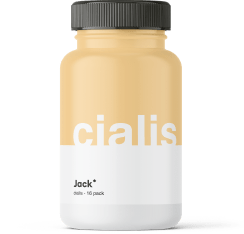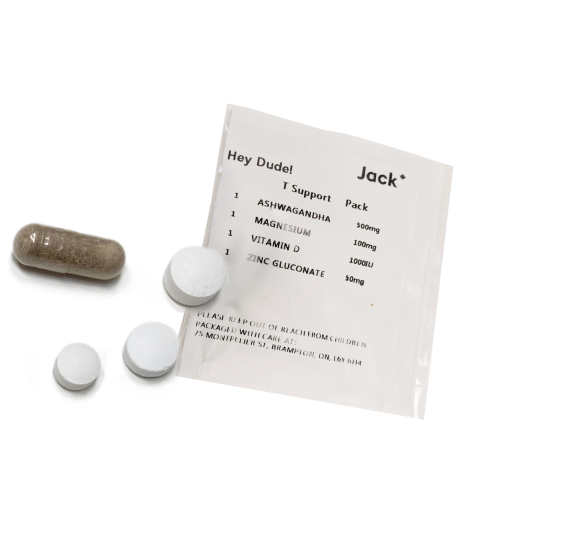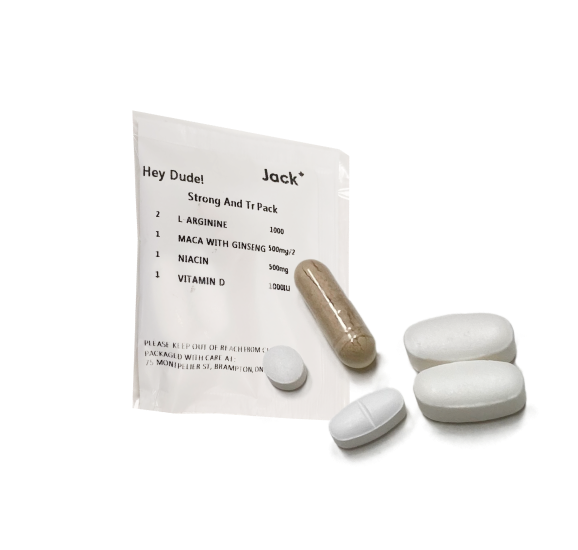Navigating the complexities of medication interactions is a crucial aspect of managing health, In this context, understanding the interaction between Mounjaro (Tirzepatide) and alcohol is not just a matter of curiosity but of safety and efficacy.
Mounjaro, a relatively new player. However, when it comes to mixing this medication with alcohol, there are several layers to consider.
This guide aims to educate and advise patients and healthcare providers alike on the potential risks, effects, and considerations necessary when combining Mounjaro with alcohol. Whether you’re a patient, a caregiver, or a healthcare professional, understanding these interactions is key to ensuring optimal treatment outcomes and maintaining overall health.
What is Mounjaro?
Mounjaro, known scientifically as Tirzepatide, is a medication. Understanding its interactions with various substances, especially alcohol, is crucial for patients.
Mounjaro and Alcohol Interactions
While there’s no direct interaction between the two, it’s best to avoid or limit alcohol with Mounjaro. Alcohol can worsen some of Mounjaro’s common side effects, such as nausea and vomiting. Alcohol can also raise your risk for serious complications, including pancreatitis, kidney damage, and low blood glucose.
While considering the interactions of Mounjaro with alcohol, it’s equally important to understand the correct dosage requirements for Mounjaro. Adhering to the prescribed dosage is crucial for maintaining its efficacy and safety, particularly when alcohol is involved.
Can You Drink Alcohol While Taking Mounjaro
It’s advised to limit or avoid alcohol consumption while on Mounjaro. Alcohol can react unpredictably with medications, impacting their effectiveness and potentially leading to side effects.
It’s important to consider the potential risks when mixing alcohol with Mounjaro, regardless of its use. For individuals with Type 2 diabetes, the caution is even more pronounced. Alcohol has the tendency to lower blood sugar levels, and when combined with Mounjaro, which also reduces blood sugar, there’s an increased risk of hypoglycemia.
Engaging in a conversation with your healthcare provider is crucial for devising strategies to mitigate this risk. This might include monitoring your blood glucose levels more closely after consuming alcohol. Additionally, it’s vital to educate yourself about the symptoms of low blood sugar, which can include:
- Blurred vision
- Confusion
- Dizziness
- Drowsiness
- Feeling jittery or irritable
- Headache
- Rapid heartbeat
- Shakiness
- Slurred speech
- Sweating
- Weakness
How Much Alcohol Can You Drink While Taking Mounjaro?
Healthcare providers generally recommend minimizing or abstaining from alcohol while using Mounjaro. The risk of hypoglycemia and other side effects increases with alcohol consumption.
Limiting alcohol to fewer than two drinks per day can or avoiding it altogether may help with weight loss. Finally, alcohol can cause low blood sugar, so drinking while taking Mounjaro may increase your risk of experiencing hypoglycemia, one of the potentially serious side effects of Mounjaro.
How Long After Taking Mounjaro Could You Drink Alcohol?
To minimize the potential for adverse effects and interactions, it’s recommended to avoid consuming alcohol soon after taking Mounjaro. A prudent strategy involves spacing out the intake of Mounjaro and alcohol by several hours.
For enhanced safety, consider waiting at least five days after your Mounjaro dose before drinking alcohol. This recommendation aligns with the half-life of Mounjaro, which is around five days. Given that Mounjaro is typically administered weekly, this timing allows for the possibility of safely consuming alcohol at least once per week.
Discuss this with your doctor or pharmacist. They can determine a safe timeframe based on your health, history, and medication regimen.
Selecting the right time to take your dose of Mounjaro is crucial, especially when considering alcohol consumption. To find the best time to take Mounjaro that aligns with your lifestyle and maximizes its efficacy, check out our guide.
Mounjaro and Alcohol Side Effects
When it comes to managing health conditions, understanding the side effects of medication interactions is crucial. This is especially true for those taking Mounjaro, a medication. However, when alcohol enters the mix, it can introduce a range of potential side effects that patients need to be aware of.
Hypoglycemia
Hypoglycemia, or low blood sugar, stands out as a significant side effect when alcohol is consumed alongside Mounjaro. However, when alcohol is introduced into the equation, it can impact the body’s ability to maintain stable blood sugar levels.
Alcohol has the potential to reduce blood sugar, which, can lead to a risk of hypoglycemia.
In addition to hypoglycemia, there are various other side effects associated with Mounjaro that you should be aware of. To explore the comprehensive list of Mounjaro side effects and how to manage them, especially when consuming alcohol, refer to our detailed resource.
Gastrointestinal Issues
Combining Mounjaro with alcohol can lead to various gastrointestinal issues, a notable side effect that patients should be aware of.
Mounjaro, can already have gastrointestinal effects on its own. When alcohol is added to the equation, these effects can be exacerbated.
It’s important for patients to monitor these symptoms and discuss them with their healthcare provider, especially if they become severe or persistent. Adjustments to the treatment plan, including dietary changes or modifications in alcohol consumption, may be necessary to manage these gastrointestinal side effects effectively.
Liver Function
The interaction between Mounjaro and alcohol can have significant implications for liver function, an aspect that is particularly crucial for patients using this medication. Mounjaro, is metabolized in the liver.
Alcohol, known for its hepatic effects, can compound the stress on the liver when used concurrently with Mounjaro.
Increased Heart Rate
The combination of Mounjaro and alcohol can have a notable effect on cardiovascular function, particularly concerning an increased heart rate.
This is an important consideration for patients using Mounjaro, Here are key aspects of how Mounjaro and alcohol can affect heart rate:
- Stimulatory Effects: Both Mounjaro and alcohol can have stimulatory effects on the cardiovascular system. When combined, these effects might be amplified, leading to an increased heart rate.
- Synergistic Reaction: Alcohol can alter the body’s response to Mounjaro, potentially exacerbating any heart rate increases caused by the medication.
Interference with Medication Absorption
The combination of Mounjaro and alcohol can potentially interfere with the absorption of the medication, impacting its effectiveness. This interference is a critical factor for patients to consider.
Patients are advised to limit or avoid alcohol while taking Mounjaro to ensure optimal absorption and effectiveness of the medication.
Regular consultation with healthcare providers is important to assess the medication’s performance and make any necessary adjustments to the treatment plan.
Monitoring for any signs of reduced efficacy can also guide decisions regarding alcohol consumption while on Mounjaro.
Does Mounjaro Interact with Other Drugs?
Yes, Mounjaro can interact with other drugs. Always discuss your full medication list with your healthcare provider to avoid harmful drug interactions.
Some of the common drugs that can interact with Mounjaro are:
- Insulin: Can increase the effects of insulin and Mounjaro
- Oral birth control: Can make oral birth control less effective
- Adderall: Can take longer for Adderall to function, might minimize the effects of Mounjaro
Key Takeaways
- Caution with Alcohol Consumption: It’s crucial to limit or avoid alcohol while taking Mounjaro, as alcohol can exacerbate common side effects like nausea and increase the risk of serious complications such as pancreatitis and hypoglycemia.
- Risk of Hypoglycemia: For those with Type 2 diabetes or using Mounjaro, there’s an increased risk of hypoglycemia when alcohol is consumed. This is due to the combined effect of alcohol and Mounjaro lowering blood sugar levels. Recognizing symptoms like dizziness, confusion, and rapid heartbeat is essential.
- Timing of Alcohol Consumption: To minimize adverse effects, it’s recommended to wait at least five days after taking Mounjaro before consuming alcohol, aligning with the medication’s half-life. This helps in safely managing the interaction between Mounjaro and alcohol.
- Monitoring and Consultation: Regular monitoring and consultation with healthcare providers are advised to manage potential side effects on liver function, gastrointestinal issues, heart rate, and medication absorption. Additionally, discussing any other medications being taken is important to avoid harmful drug interactions.
Frequently Asked Questions
What Happens If I Drink a Lot While I Am Taking Mounjaro?
Drinking heavily while taking Mounjaro may raise your risk of pancreatitis or kidney damage. People with a history of these issues may have a greater risk of developing them. What’s more, the digestive side effects above can lead to dehydration.
How Does Alcohol Affect the Efficacy of Mounjaro?
While there’s no direct interaction between the two, it’s best to avoid or limit alcohol with Mounjaro. Alcohol can worsen some of Mounjaro’s common side effects, such as nausea and vomiting. Alcohol can also raise your risk for serious complications, including pancreatitis, kidney damage and low blood glucose.
Are Certain Types of Alcohol Safer to Consume with Mounjaro Than Others?
When considering the consumption of alcohol while taking Mounjaro (Tirzepatide), it’s important to understand that no specific type of alcohol can be deemed categorically safer than others in this context. The primary concerns with combining alcohol and Mounjaro revolve around the effects of alcohol on blood sugar levels, potential exacerbation of side effects, and the overall impact on the medication’s efficacy, regardless of the type of alcoholic beverage consumed.
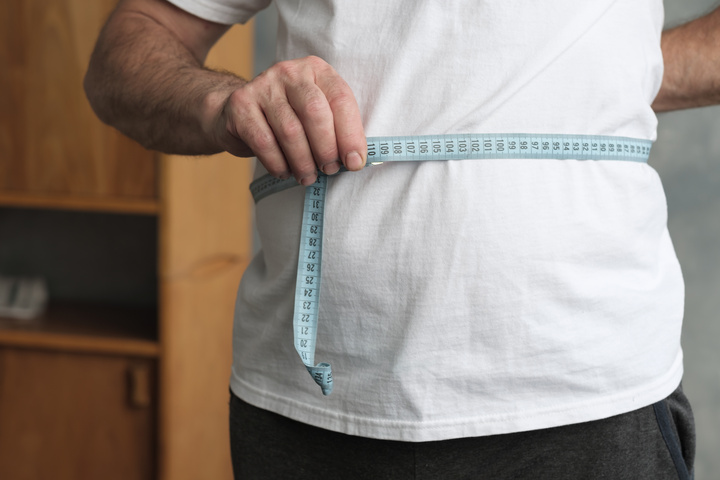




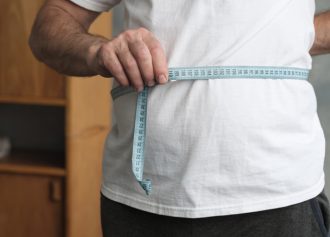
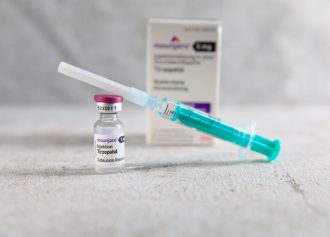
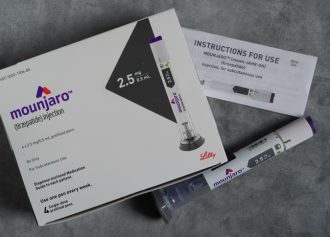
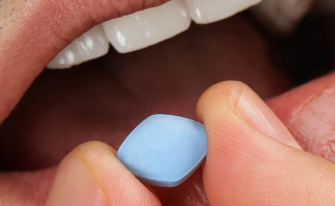





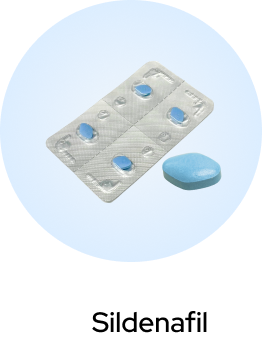
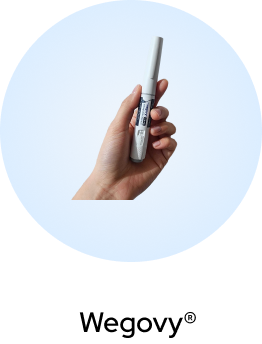
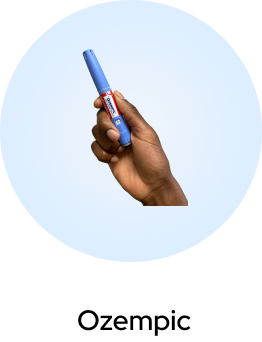


 (US)
(US)